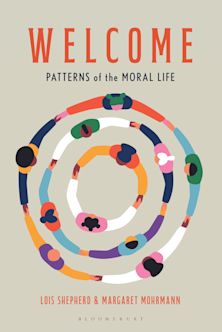Philosophy of Communication Ethics
Alterity and the Other
Philosophy of Communication Ethics
Alterity and the Other
Description
Philosophy of Communication Ethics is a unique and timely contribution to the study of communication ethics. This series of essays articulates unequivocally the intimate connection between philosophy of communication and communication ethics. This scholarly volume assumes that there is a multiplicity of communication ethics. What distinguishes one communication ethic from another is the philosophy of communication in which a particular ethic is grounded. Philosophy of communication is the core ingredient for understanding the importance of and the difference between and among communication ethics. The position assumed by this collection is consistent with Alasdair MacIntyre’s insights on ethics. In A Short History of Ethics, he begins with one principal assertion—philosophy is subversive. If one cannot think philosophically, one cannot question taken-for-granted assumptions. In the case of communication ethics, to fail to think philosophically is to miss the bias, prejudice, and assumptions that constitute a given communication ethic.
Table of Contents
Introduction
Section I: Otherness: Place and Space
Chapter 1: The Pantheism Controversy: Rhetoric, Enlightenment, and Memory by G. L. Ercolini
Chapter 2: A Rhetoric of Sentiment: The House the Scots Built by Ronald C. Arnett
Chapter 3: Before the One and the Other: Ethico-Political Communication and Community by Pat J. Gehrke
Chapter 4: Ethics, Kairos, & Akroasis: An Essay on Time and Relation by Lisbeth Lipari
Section II: Otherness and Justice
Chapter 5: Communication, Diversity, and Ethics in Higher Education by Brenda J. Allen
Chapter 6: Tymieniecka’s Benevolent Sentiment as Ground for Communication Ethics: Juliette Hampton Morgan’s Advocacy for Racial Justice by Pat Arneson
Chapter 7: The Ethical Challenges of Friendship in Interpersonal and Mexico-US Relations: A Case Study of The Three Burials of Melquiades Estrada by Austin S. Babrow and Lindsey M. Rose
Chapter 8: Resolutions of Regret: The Other in the Evolution of a State Apology for Slavery by John B. Hatch
Chapter 9: Public Memory of Christopher Isherwood’s Novel, A Single Man: Communication Ethics, Social Differences, and Alterity in Media Portrayals of Homosexuality by Lester C. Olson
Section III: Otherness and Contextual Divergence
Chapter 10: Organization as Other: Professional Civility as Communicative Care for Institutions by Janie M. Harden Fritz
Chapter 11: An Example of the Plurality of Levels of Communication Ethics Analysis in a Newspaper Article by Alain Létourneau
Chapter 12: Leisure and the Other: Philosophy and Communication Ethics by Annette M. Holba
Chapter 13: Saving the Nation: Redemptive Ethos and the Moral Figure of the Refugee by Andreea Deciu Ritivoi
Chapter 14: Communicology and the Ethics of Selfhood under the Regime of Antidepressant Medicine by Isaac E. Catt
Afterword
Machiavelli’s Question Mark and the Problem of Ethical Communication by Gerard A. Hauser
Bibliography
About the Contributors
Product details
| Published | 08 Oct 2014 |
|---|---|
| Format | Ebook (Epub & Mobi) |
| Edition | 1st |
| Extent | 364 |
| ISBN | 9781611477085 |
| Imprint | Fairleigh Dickinson University Press |
| Illustrations | 2 b/w photos; 3 tables |
| Series | The Fairleigh Dickinson University Press Series in Communication Studies |
| Publisher | Bloomsbury Publishing |



































